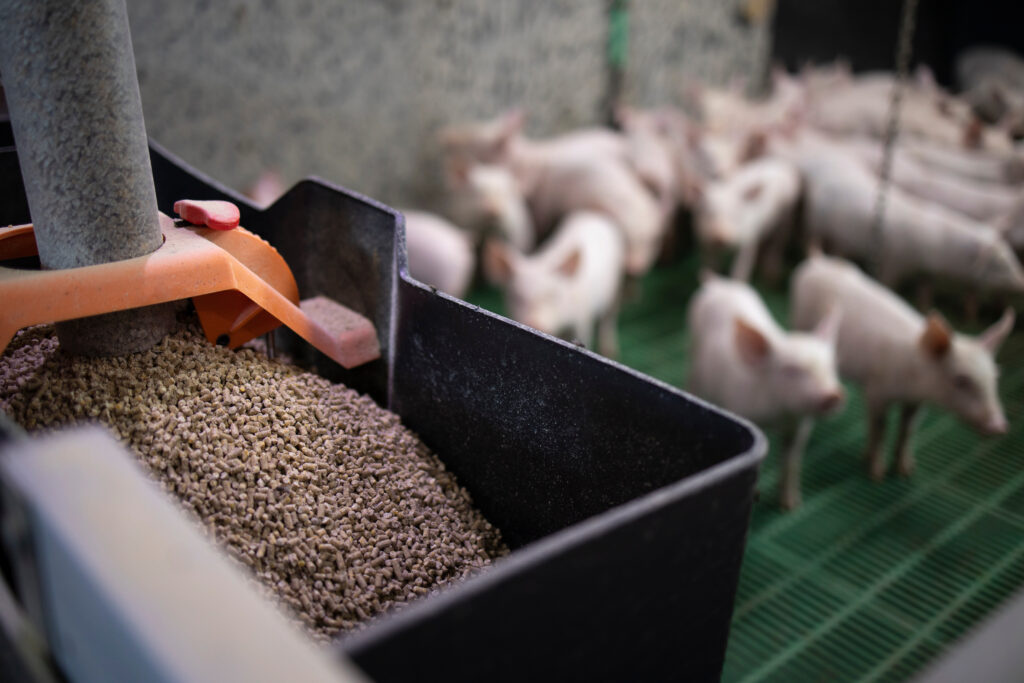Defra is consulting on a potentially significant change to feed controls that would allow poultry and insect protein to be fed to pigs and pig protein to be fed to poultry in England and Wales, under strictly controlled conditions.
Strict BSE control measures introduced in the UK in 1988 and updated in 2001, prohibit animal protein from being fed to farmed animals, with very limited exceptions.
However, it has long been acknowledged that allowing it in limited circumstances could deliver environmental benefits, reducing the industry’s reliance, for example, on imported soya, and potentially reduce costs for producer. The change is already in place in the EU and Scotland is currently consulting on a similar move.
This consultation outlines proposals to change the feed control rules in England and Wales to allow:
- Poultry processed animal protein (PAP) in pig feed.
- Porcine PAP in poultry feed.
- Insect PAP in pig and poultry feed.
- Ruminant collagen and gelatine (C&G) in non-ruminant feed.
Launching the consultation, Defra points out that incidence of BSE in the UK has greatly reduced since the height of the epidemic in 1992. However, it says current livestock feed regulations remain unduly restrictive and no longer reflect current scientific knowledge or the level of BSE risk.
“The changes proposed do not affect the UK’s high level of biosecurity, animal and public health protection and would not increase TSE risk. Key protections will remain in place, including the banning of using processed animal protein of ruminant origin in feed and the prohibition of intra-species recycling,” Defra said.
“Any changes made following consultation would give farmers more choices, open new markets for renderers, support the potential for investment in the insect protein sector and maintain a level playing field with the EU, where these changes were introduced in 2021, giving farmers in England and Wales the same choices their European counterparts have.”
Environmental footprint
NPA chief executive Lizzie Wilson said: “This will really help our environmental footprint by replacing soya, which is imported from South America or North America, as a source of protein.
“However, it is not going to be a silver bullet to our protein problem for many reasons. Of course, it has to be completely safe and well regulated and we will need to look at who delivers and who pays for that.
“Also, there are constraints around single-species production, both practicality in its manufacture and in terms of cost, which means it might not lend itself to the UK pig and poultry feed sectors.
“Also, it’s not cheap – protein finds its own level in the market. This is permitted in Europe, but is hardly used for all these reasons, and PAP already has a very lucrative export market.
“So, this is an important consultation but there are plenty of issues to address.”




